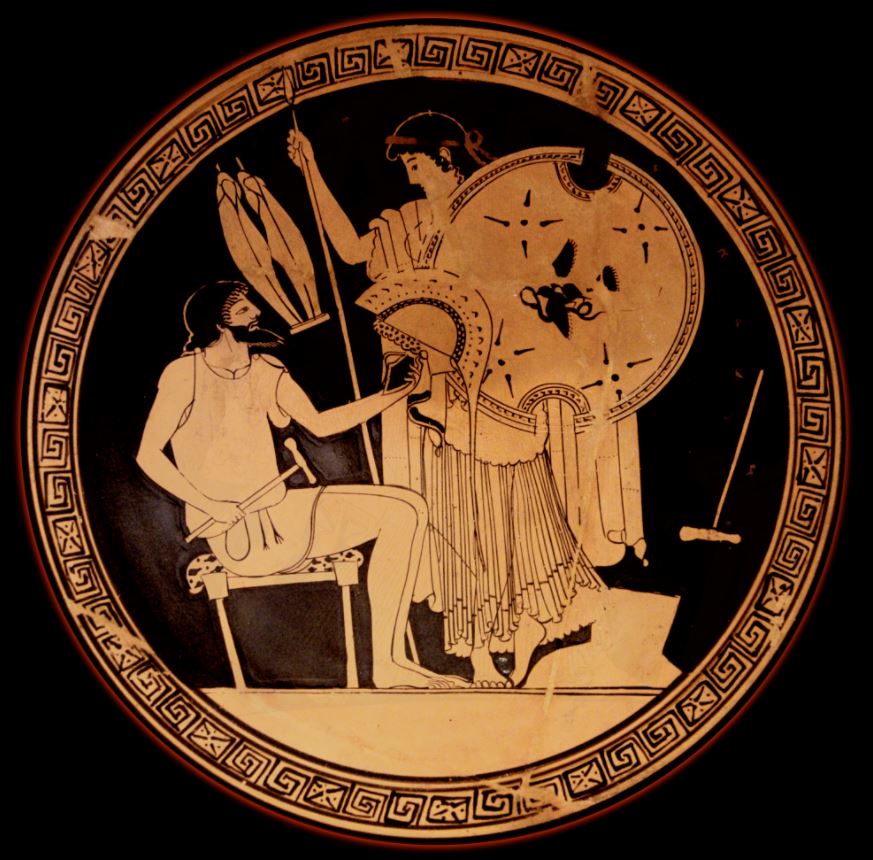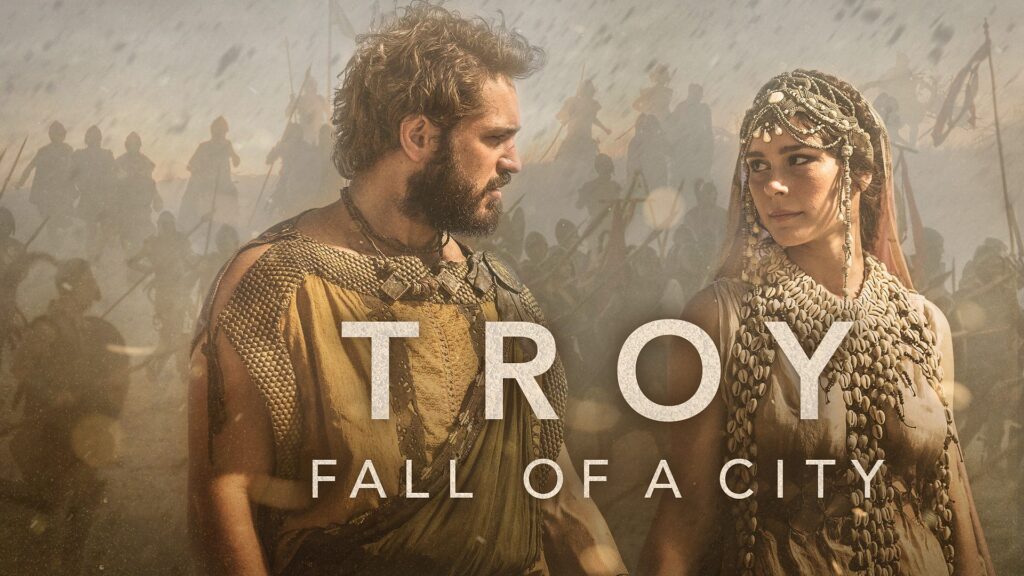
In 2022, my poetic narrative about Thetis, immortal sea nymph and mother to Achilles, will be published. Thetis is an immortal goddess who learns what it means to be human, and the narrative follows her life, before and after the Trojan war. Stories of gods and goddesses have always fascinated me, and it’s both exciting (and a bit scary) to think of Thetis finally becoming available in print.
Homer’s epic poem, The Iliad, tells us about the final weeks of the Trojan war and Thetis plays an active part in all the major plot points. Yet she remains a peripheral figure, despite her power to intervene with the gods, which is evident throughout.
The story of Thetis is a tragic one. Raped and forced into marriage with the mortal King Peleus of Phthia, Thetis was initially a reluctant mother. In some versions outside of Homer, she killed her first six children, before Achilles was born. This son was different and Thetis adored him, doing all she could to prevent his dying young as foretold by the Fates. Efforts to save Achilles included dipping him in the River Styx to make him invulnerable, and sending him to Skyros, disguised as a maid for the Princess Deidamia, to avoid having to fight at Troy.
The attempt to hide Achilles failed when Odysseus tricked him into revealing his identity. At Troy, Achilles died from an arrow shot through his heel. This was the spot where Thetis held him in the river between her finger and thumb, when he was a baby, an action which inadvertently led to his death. Tragedy is defined as great suffering, destruction, and distress and the story of Thetis is tragic by anyone’s standards, yet Thetis has rarely been a central topic of attention.

My version of the life of Thetis is being published by Esplanade Press, an independent publisher based in Scarborough, and run by Scarborough poet Felix Hodcroft. Part of the narrative was due to be performed at Rotunda Nights, a monthly poetry and music event run by Scarborough Museums Trust, but was cancelled during the first lockdown. We still hope to arrange a performance of some of the most vivid excerpts during a launch event or events. Throughout the preparation stages, a constant topic of discussion has been the extent to which we can assume – or not – the reader’s awareness and knowledge of ancient Greek myth.
Classical writers are themselves divided on how to read and interpret ancient stories. There are no original copies so our understanding relies on fragments and references, often made many centuries later. I’ve used the Iliad, alongside other classical works which refer to Thetis, as a foundation for the narrative.

The Iliad was an oral poem, thought to have been first written in 800 BC, which tells of events alleged to have taken place around 1200 BC. The ruins of a great city, believed to be Troy, have been excavated at Hissarlik in northern Turkey, as have the remains of palaces at Sparta and Mycenae, thought to belong to the king brothers Menelaus and Agamemnon.
Findings suggest the war between the Greeks and Trojans has some historical basis, but Homer’s epic is inextricably entwined with myths about the Greek pantheon of gods and goddesses. Thetis is set in a world where mortals and immortals live side by side and the gods think nothing of interfering in the lives of humans. This makes her story full of poetic potential while the gaps in our knowledge are a gift for the creative imagination.

Thetis and Hephaestus
The eldest of 50 sea nymph sisters known as the Nereids, Thetis’s parents were Nereus, often called the Old Man of the Sea, and Doris, goddess of freshwater rivers and springs. Thetis’s grandmother was Gaia, earth goddess and her grandfather was Uranos. Both were Titan gods, overthrown by the Olympians, led by Zeus and Poseidon.
Thetis has provenance and a long history. Responsible for saving Hephaestus when Hera threw him from Olympus, Thetis also supported Zeus when Olympus was in rebellion, gave sanctuary to Dionysius when he fled from Thrace, and helped Jason and his Argonauts to navigate through the Clashing Rocks.

All this took place before the famous Judgement of Paris, where Paris, the youngest prince of Troy, was forced by Zeus to choose the most beautiful goddess. Aphrodite, Athena and Hera were in competition with each other but it was the goddess of love, Aphrodite, who bribed Paris with the promise that the most beautiful woman in the world, would fall in love with him. The affair between Paris and Helen, wife of King Menelaus of Sparta, caused Menelaus and his brother Agamemnon, to go to war against the Trojans. During the judgement, Paris gave Aphrodite a golden apple. Inscribed with the words to the fairest. This was bought by Eris, the goddess of strife, to the wedding of Thetis and Peleus.
There she is again!

The Trojan War has fascinated many writers and the 21st century has seen a range of published books inspired by the wars alongside the pantheon of ancient greeks gods and goddesses.
I love them all.
They include The Song of Achilles and Circe by Madelaine Millar, The Silence of the girls by Pat Barker, A thousand ships by Natalie Haynes (who also presents the Radio 4 series Stands Up for the Classics), Achilles by Elizabeth Cook, The Peneliopad by Margaret Atwood, and Ransom by David Malouf. There are historical non-fiction books such as Michael Wood’s In Search of the Trojan Wars, Brittany Hughes‘s Helen of Troy and In Search of Homer by Adam Nicholson, plus films; the Hollywood version told in Troy and the BBC series Troy, Fall of a City. Poems inspired by the Trojan war include Christopher Logue’s War Music and Seamus Heany’s The Cure at Troy. All these provide evidence of a continuing fascination. The women of Troy have all recently been revisited but so far, Thetis has not yet played a central role.

From the BBC drama Troy Fall of a City
I’m curious as to why so little about Thetis has come down through history. She is sometimes mentioned in passing so maybe it’s because few writers seem to have joined up the dots.
Esplanade Press will be publishing Thetis in the summer of 2022 and I’m looking forward to the opportunity to raise her status and position her centre stage. In my mind, this is where Thetis has always deserved to be.

Thetis asking Hephaestus to make new amour for Achilles
One thought on “The tragedy of Thetis”